
Understanding Tenant Responsibility For Property Damage In Illinois
If you own a home or invest in real estate in Illinois, you should know what renters are responsible for when they damage your property. Illinois state law says that renters are responsible for any damage they, their guests, or their pets cause.
This includes harm that was done on purpose or by accident. If lenders can show that the tenant caused the damage, they can deduct the cost of fixing it from the security deposit.
Also, landlords can’t charge for regular wear and tear on the property. To prevent disputes, it’s best to have a detailed lease deal that spells out exactly what the tenant is responsible for when it comes to repairs and maintenance.
Regularly checking and fixing problems can also help prevent major problems. Knowing that tenants are responsible for property damage can help Illinois landlords protect their capital and keep the relationship between landlords and tenants running smoothly.
Legal Rights And Responsibilities Of Landlords In Illinois Regarding Tenant Damage
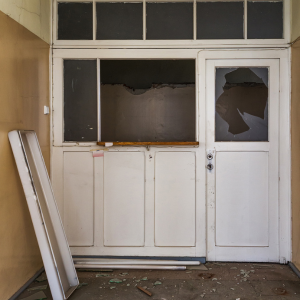
As an Illinois landlord, you must know your legal rights and responsibilities regarding tenant damage. The Illinois Tenant Union allows landlords to deduct a percentage of the security deposit for tenant-caused damages and cleaning.
However, this must be documented, itemized with receipts, and given to the renter within 30 days of their move-out. Landlords are also responsible for providing safe and habitable living conditions for their renters, which includes swiftly addressing any property damage or repairs.
Failure to do so may result in legal action from the renters. Landlords should carefully study their lease agreements and follow all state regulations regulating tenant damage to avoid disagreements or legal concerns.
Potential Consequences For Tenants Who Cause Property Damage In Illinois
In Illinois, tenants who damage property may face harsh punishments. People who own rental properties or deal in real estate should know that damage caused by tenants can have legal and financial consequences.
Illinois law says that renters are responsible for caring for the property and ensuring it stays in good shape. That person might have to pay to fix or replace things if they don’t do that and damage something.
Another thing landlords can do is deduct the cost of repairs from a tenant’s security fee. In the worst situations, owners may go to court to collect money from the tenant.
Should someone damage someone else’s property, both parties should know their rights and responsibilities so that there are no problems or losses.
How To Prevent Tenant-related Property Damage In Your Illinois Rental
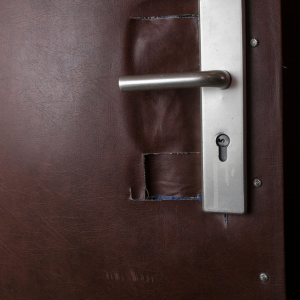
If you own a home or invest in real estate in Illinois, you should be aware of the risks of damage to your property by tenants and take steps to avoid it. One way to do this is to carefully screen possible renters before letting them move in.
This could mean looking at their rental records, credit scores, and references from past landlords. In the rental deal, clarifying what is expected of the tenants and how they are supposed to take care of the property can also help set limits and hold them responsible.
The property can also be checked regularly to find any small problems before they get worse. If there is damage, having a clear way to report it and fix it can help prevent it from getting worse.
By doing these things, you can protect your investment in your Illinois rental and lower the risk of damage from tenants.
Addressing Tenant Damage: Landlord’s Guide To Documentation And Evidence
Understanding how to resolve tenant damage is critical for Illinois landlords and real estate investors to safeguard their properties and interests. Documentation and evidence are key components in dealing with tenant damage.
This involves recording the property’s condition before the tenant arrives, keeping records of repairs and maintenance done during the lease, and completing a complete move-out inspection with the tenant present. Collecting photographic evidence of any damages and retaining copies of repair bills and receipts is also critical.
These records can be used as strong evidence in a dispute about liability for damages. Landlords in Illinois can better defend themselves and their property by maintaining precise and structured documentation when dealing with tenant damage.
Handling Insurance Claims For Tenant-related Property Damage In Illinois
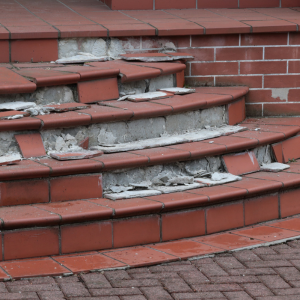
Any Illinois homeowner or real estate investor should know how to handle an insurance claim if a renter damages their property. When a renter damages your rental property, you may lose money and have difficulties.
This problem starts with fully knowing your insurance coverage and what “tenant damage” means. Support your claim with proof of the property’s state before and after the tenant’s stay. To settle any disagreements or problems that may come up during the claims process, you should also act quickly and speak clearly with both your insurance company and the tenants involved.
Learn about your insurance plans and take action to protect yourself from possible losses in Illinois caused by tenant-related property damage.
Exploring Different Types Of Tenant Damages And Their Impact On Landlords
Real estate investors and landlords in Illinois should be aware of the different kinds of damage that renters can cause to their properties. Physical damage includes busted windows, holes in the walls, and broken tools.
Damage like this can be expensive to fix and can greatly affect your rental profits. Damage that happens because tenants don’t take care of the property properly and let it worsen is called neglect or lack of upkeep.
For landlords, this can mean expensive fixes and renovations. Damages done intentionally by tenants, like vandalism or theft, can also cost owners a lot of money.
Landlords and real estate investors can better protect their homes and money by knowing about these different types of damage caused by tenants.
The Importance Of Clear Lease Agreements In Protecting Against Tenant Damage In Illinois
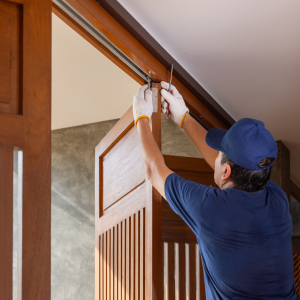
As a homeowner or real estate investor in Illinois, you need a clear and thorough lease agreement to protect yourself from damage that a tenant might do. Without a thorough lease agreement, you could be left with expensive repairs and losses because the renter was careless or did it intentionally.
By clarifying what is expected of your tenants regarding property care and repair, you can ensure they know what to do and are held responsible for any damage they cause. A well-written lease agreement will also protect you legally if there are disagreements about damage to the property.
It is important to carefully read and update your lease agreements regularly to ensure they comply with current laws and cover all possible situations where tenants might damage the property. With a clear lease deal, you can protect your Illinois investment property and keep your money safe.
Tips For Conducting A Move-in And Move-out Inspection To Identify Potential Damages
Illinois homeowners or real estate agents should be aware of the damage tenants can cause to their properties. A thorough move-in and move-out inspection is one of the best ways to protect your property.
Before a renter moves in and after they leave, these checks should be done to look for any damage that might have happened during their stay. When doing these inspections, paying close attention to the little things and writing down any damage or problems with the property’s state is important.
Make sure to check the walls, floors, tools, fixtures, and every other part of the property. Taking photos or movies can also be used as proof in case there are later disagreements about who was at fault for the damage.
It is also a good idea to have a list of things that need to be checked during both the moving-in and moving-out processes to ensure everything is done correctly and consistently. If homeowners and real estate investors follow these tips, they can better protect their homes from damage that renters might do.
Strategies For Communicating With Tenants About Repairing Damages
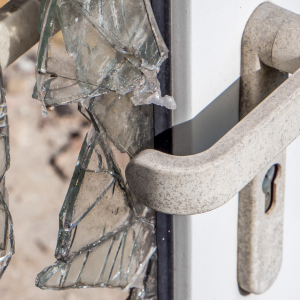
People who own homes or deal in real estate in Illinois often have trouble talking to their tenants about fixing up damage to the property. As a landlord, you should have a clear plan for how to talk to your tenants about the damage they’ve done.
This means making sure you can talk to your tenants, telling them what you expect from them regarding repairs and upkeep, and giving them clear instructions on how to report damage. It’s also important to track all repairs and ensure the renters understand any costs or duties.
Using a professional and polite tone during these talks can also help you build good relationships with your tenants and ensure that fixes are done on time. By using good communication strategies, landlords can fix damage caused by tenants and keep the value of their property high.
Effective Ways To Collect Compensation From Tenants For Causing Property Damage
Illinois property owners and real estate investors should know the rules and laws about renter damage to property. An annoying and expensive problem can arise when a renter damages your property.
Unfortunately, there are successful ways to get tenants to pay for the damage they cause to the property. Firstly, it is very important to have a thorough and specific lease agreement that spells out exactly what the tenant is responsible for regarding repairs and maintenance.
Document any damage that happens before and after a tenant moves in. The renter can pay for damages, or the owner can take legal action if needed.
In addition, landlords might want to make renters buy renter’s insurance, which can cover damage the tenant causes. For homeowners and real estate investors, knowing these ways to get renters to pay for damage they cause can protect their investments and keep financial losses to a minimum.
The Role Of Security Deposits And Other Financial Protections Against Tenant Damage
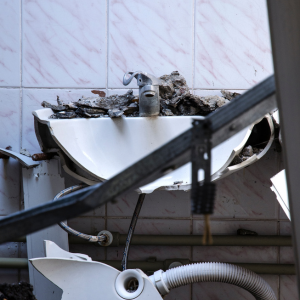
When it comes to tenant damage, Illinois homeowners and real estate investors should know how security fees and other financial protections work. Security deposits give landlords money to cover any damage their renters might cause.
Licensors in Illinois are legally allowed to use renters’ security deposits to fix damage beyond normal wear and tear. However, it’s also important to know that within 30 days of a renter moving out, landlords must give a detailed list of all the things that were taken out of the security deposit.
In addition to landlord insurance, another way to protect yourself financially from damage caused by renters is to require renter’s insurance. These financial safeguards are very important for Illinois homeowners and real estate buyers to understand to safeguard their properties and investments fully.
How To Handle Disputes Over Responsibility For Specific Types Of Property Damage
One of the worst things about being an owner or real estate investor in Illinois is dealing with the damage done by tenants. Even though most renters are sensible and take good care of the place they rent, problems and accidents can still happen.
It is important to know who is responsible for what kinds of damage to the property if you own a house or invest in real estate. Damage from pets, carelessness, vandalism, and normal wear and tear are all included.
By learning about Illinois’s rules and laws about damage caused by tenants, you can handle any problems and keep your investment safe. It is important to have clear records of the property’s state before and after the rental period and detailed lease agreements that spell out who is responsible for repairs and damages.
Talking to tenants is also important for resolving problems and finding an answer that works for everyone. Follow these tips and know what your rights are as an Illinois owner or real estate investor. You should be able to handle any disagreements about who is responsible for certain types of property damage.
Finding Reliable Contractors And Vendors For Repairing Tenant-related Damages
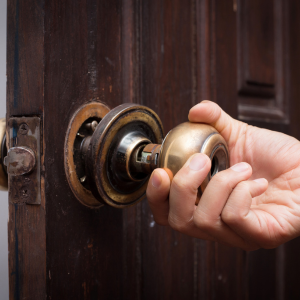
In Illinois, one of the hardest things for homeowners and real estate buyers is fixing damage caused by tenants. If this is not handled correctly, it could cost much money.
One good way to deal with this problem is to find trustworthy vendors and workers who fix the damage caused by tenants. These experts have the necessary expertise and experience to assess the damage, provide an accurate estimate, and carry out repairs quickly.
Before hiring a contractor, you should research them to ensure they are licensed, insured, and have a good history of finishing jobs like yours. Finding reliable contractors and vendors to fix damage caused by tenants in Illinois can also be helped by making connections with other property owners or asking for tips from people you trust.
Navigating The Eviction Process When A Tenant Refuses To Pay Or Fix Damages
When a tenant in Illinois doesn’t pay rent or fix damage to the property, it can be stressful and hard for property owners and real estate investors. To escape this situation without losing your cool, you must know much about renter rights and landlord duties.
The first thing to do is look over the lease and see if there are any terms about not paying or damaging the property. If so, landlords should give the renter written notice of how much money is owed or what repairs need to be made.
If the tenant doesn’t follow the rules, the owner can file a lawsuit to evict them in the local court. During this process, it’s important to follow all the necessary steps and show proof that the tenant didn’t.
In addition, landlords may be able to get money for losses through small claims court.
Seeking Legal Assistance: When And How To Involve An Attorney In Cases Of Tenant-related Property Damage
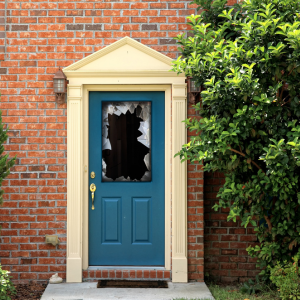
Understanding tenant damage to your property is critical for preserving your assets if you own a home or are an Illinois real estate investor. However, when tenant-related property damage occurs, legal aid may be required.
When the damage is severe or extensive, and the renter is reluctant or refuses to pay for repairs, it is critical to retain the services of an attorney. Furthermore, if the tenant’s conduct was intentional or negligent, an attorney can assist you in pursuing legal action and recovering damages.
You should also speak with an attorney before taking any legal action against a renter to ensure that all necessary procedures are followed and your rights as a landlord are safeguarded. In cases of tenant-related property damage, hiring an attorney can help you manage the complex legal process and preserve your investment.
Dealing With Repeat Offenders: Steps You Can Take As A Landlord Against Habitual Tenants Who Cause Damage
If you are an owner or real estate investor in Illinois, fixing the damage done by tenants can be annoying and cost a lot of money. Of course, things get even harder when it comes to repeat offenders who always damage your rental units.
Not only do these tenants cost money, but they also make the whole neighborhood less peaceful and healthy. Should this happen to you as a landlord, there are things you can do to protect your property and make these repeat renters responsible for what they do.
If you know the laws and how things work, you can deal with repeat offenders successfully and keep your investment safe.
Understanding The Emotional Toll Of Dealing With Tenant-related Property Damage As A Landlord.
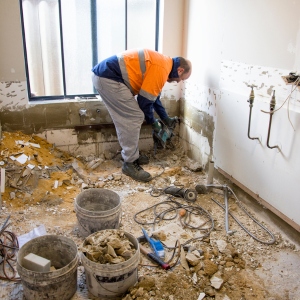
If you are an owner or real estate investor in Illinois, you need to know how hard it is on your emotions to deal with damage done by tenants. It can be annoying and overwhelming to see damage done to your property by tenants, especially if they did it on purpose.
Repairs can be expensive and take a lot of time, adding to landlords’ stress and mental strain. Also, the landlord may feel betrayed and lose trust in the renter, which can be bad for their mental health.
Landlords need to be aware of these feelings and find ways to deal with them to handle damage professionally caused by tenants.
Steps To Take When A Tenant Causes Damage To Your Property In Illinois
Property owners and real estate buyers in Illinois can feel stressed and angry when a tenant damages their rental property. Knowing what needs to be done to handle the problem correctly is important.
First, you need to examine the damage and record it fully, with pictures and written accounts. Again, look at the lease to see if the tenant is responsible for paying for the fixes.
If so, send the renter a written notice explaining the damage and asking them to pay for it. If they don’t answer or won’t pay, you may have to go to court.
Using a security deposit to pay for repairs is sometimes possible, but it is important to follow the right steps for taking money out of an Illinois security deposit. It is very important to keep in touch with the renter during this process to reach a solution and avoid any more problems or damage.
What Is The Property Damage Law In Illinois?
Understanding Illinois’ property damage rules is critical for homeowners and real estate investors who own rental properties. Under Illinois law, tenants are liable for any property damage they create, whether deliberate or inadvertent.
This includes damage beyond typical wear and tear, such as damaged appliances or holes in the wall. Landlords can take the cost of these damages from the security deposit at the end of the lease.
However, landlords must furnish an itemized account of damages and charges within 30 days after the tenant’s move out. Landlords should be conversant with these rules to preserve their investment and avoid legal problems.
Can A Landlord Sue For Damages In Illinois?
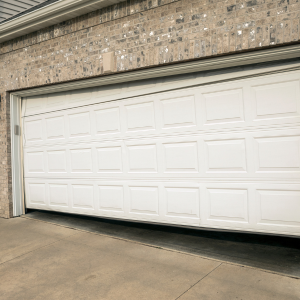
Damage from tenants is one of the things that Illinois landlords worry about the most. If you own a home or invest in real estate, you should know your rights when getting renters to pay for damage they cause.
While some might think that suing is the only choice, there are other ways to get justice. The Illinois law says landlords can take repair fees out of the security deposit or go to small claims court to get money.
But renters must carefully record any damage and follow the right steps if they want to get their money back. If landlords in Illinois know the rules and laws about renter damage, they can protect their investments and ensure fair payment for any damage that happens.
How Long Does A Landlord Have To Bill You For Damages In Illinois?
As an Illinois landlord or real estate investor, you should know the rules and laws about what to do if your tenants hurt your property. Knowing how long you have to charge renters for damage is important.
Under Illinois law, landlords have up to 30 days after the end of the tenant’s lease to provide a detailed list of all the costs and damages they paid. This timeline gives both sides enough time to document the situation properly and communicate with each other.
But landlords can still go to court to get paid for losses found after 30 days. Landlords need to keep good records and talk to their renters clearly so they can fix any problems with damage within the time limit.
How Long Does A Landlord Have To Make Repairs In Illinois?
Illinois property owners and real estate investors need to know the rules and laws regarding what to do if a renter damages their home. Time limits on fixes are also important to consider.
Legally, Illinois landlords must make any needed repairs within a reasonable amount of time after being told by the tenant. Simply put, you should take care of the problem immediately and keep fixing things.
Not doing this could lead to legal problems and more damage to your property. Keeping good records of the repairs made is also important in case of a disagreement.
Understanding your duties as a landlord will help you keep your investment safe and maintain a good relationship with your tenants.
These Findings Apply to All Cities in Chicago, Orland Hills, Palatine, Skokie, Orland Park, Oak Park, Schaumburg, Cicero, Frankfort, Lombard, Addison, River Grove, and more!


